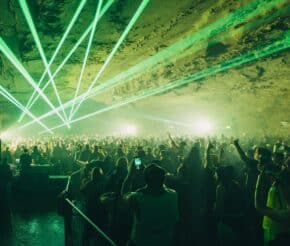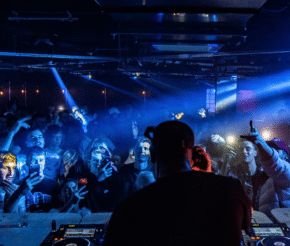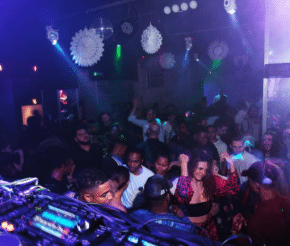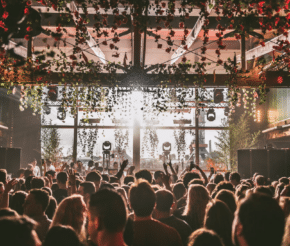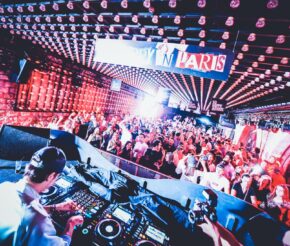- Advertise
-
Subscribe
All About Bootshaus Cologne
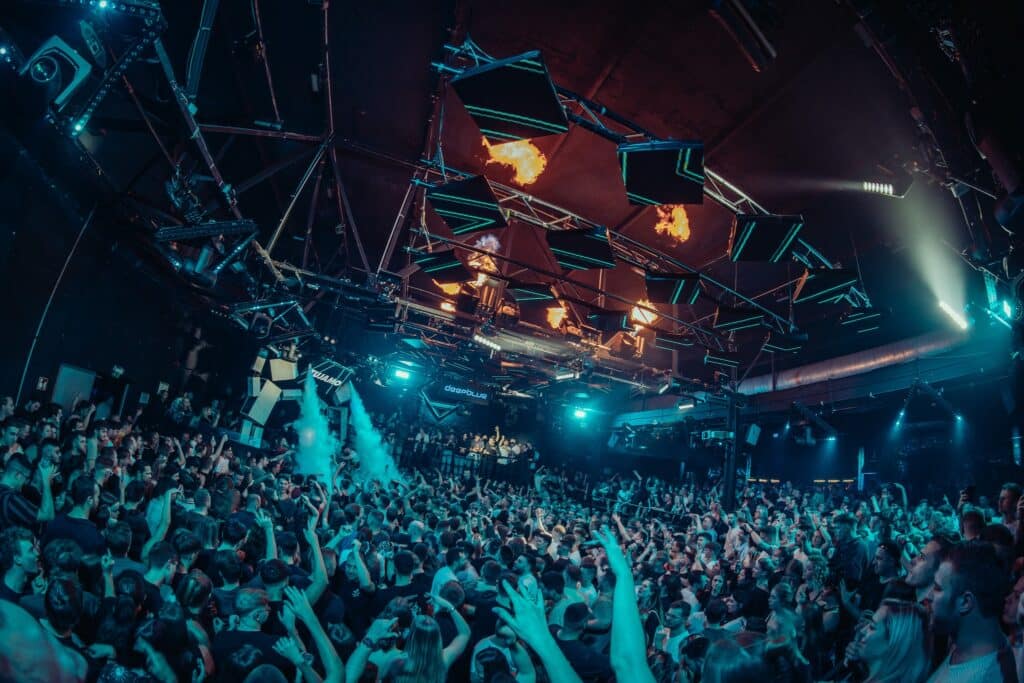
Cologne, Germany
Club / Indoor & Outdoor / S – 500-2k
City
Electronic
$$$
Underground, Alternative, International
Casual
Are you a party animal that never sleeps? If so, Bootshaus Cologne is the perfect place for your night-owl adventures.
When it made its debut in 1991, the electronic mecca placed Cologne firmly on the clubbing map as one of the very first cities to promote techno culture outside of Berlin.
Seeking refuge at the Deutz shipyard in Mulheim, northeast of Cologne, the club offers a raw and industrial vibe with its large outdoor patio and three floors.
Bootshaus’s notoriety as the host of its Loonyland party series made it a prime party destination.
Immerse yourself in the ultimate auditory experience at Bootshaus, where you can expect only top-notch beats. Find your groove and get lost in an eclectic blend of dark techno, house, trap and drum & bass to hardstyle – all under one roof.
Every weekend, this beloved Cologne club plays host to a diverse congregation of locals and international clubbers.
Bootshaus is an experience every electronic music enthusiast must include on his bucket list thanks to its large space and club nights that turn into nonstop raves.
Here’s everything you need to know about Bootshaus Cologne.
Once a storage facility for boats, now a premiere German club
Bootshaus – German for boathouse – drops hints about its personality before you get a chance to pass through its doors. This electronic temple opened back in 1991 in what used to be a storage facility for boats on Rhine river’s eastern bank.
Between austere warehouses, rusty railways, and industrial buildings, Boothaus adopted the underground allure of its next-door neighbors. When it kicked off its electronic sessions, it was named Warehouse.
Back then, Boothaus was as one of the first techno-forward clubs outside Berlin.
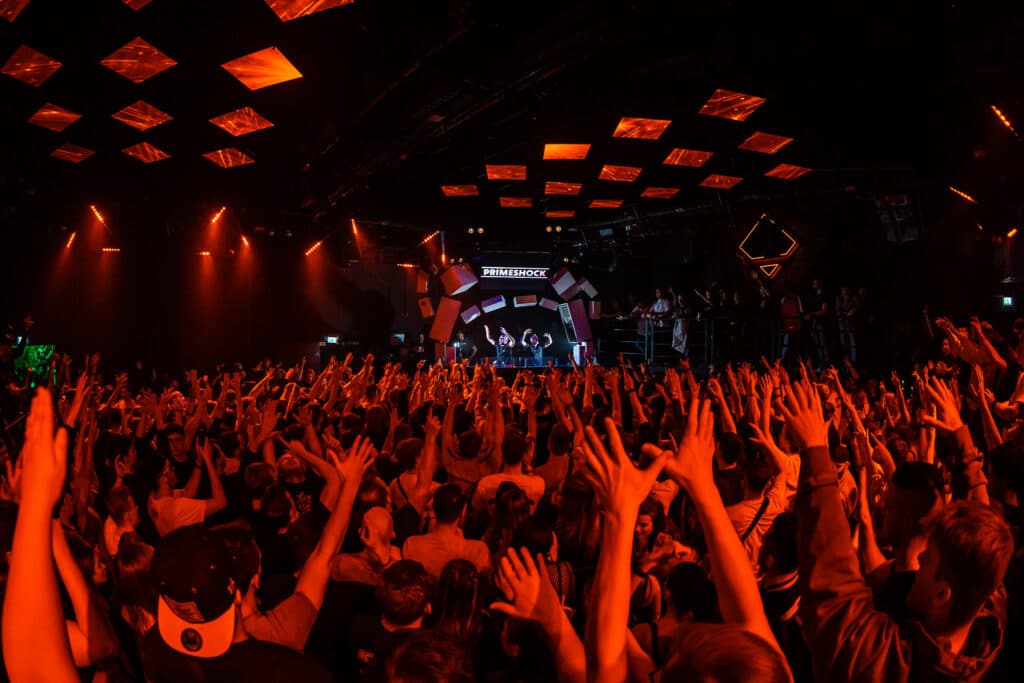
Ulrich Rauschenberger and Sascha Weber – the masterminds behind the famous Loonyland clubbing concept – put the emblematic music temple on Cologne’s clubbing map in 2004 with their marathon-like party series.
By 2005, the techno-fueled club had changed its name to Bootshaus. With a ‘new year, new me’ motto, the music temple packed its bag and moved to its current location.
With a relentless commitment to making nightcrawlers’ clubbing sessions memorable enough to be passed through generations, Cologne’s Bootshaus morphed into the type of club that needs no advertising to fill its rooms.
Bootshaus found shelter east of the Rhine river
In 2005, the electronic club moved to Mülheim, a waterfront area nestled along the right bank of the Rhine river.
Brimming with unique cultural venues, the ethnically-diverse Mülheim is home to Kulturbunker Mulheim, a former World War II air raid shelter that transformed into a cultural center.
Event spaces like E-Werk and Palladium, which hosts concerts, speak volumes about the residents’ appetite for beat-fueled events.
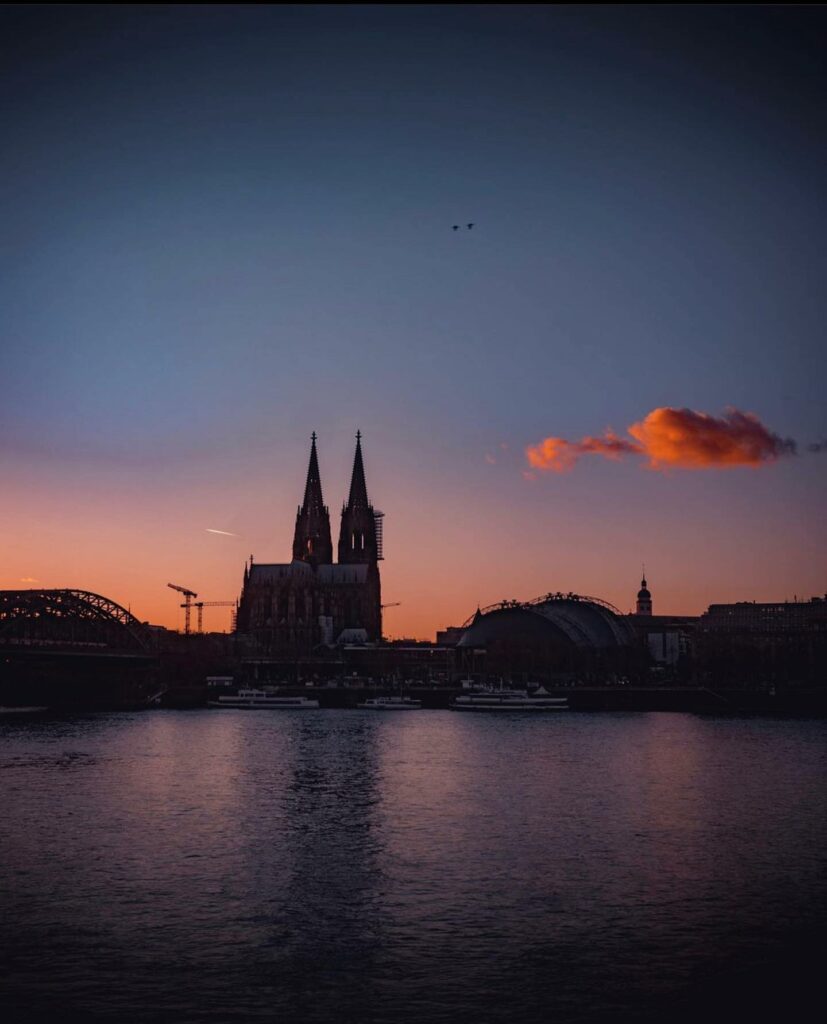
For architecture lovers, Mülheim is where you can find industrial homes from the 1920s, with timbered houses and gabled roofs.
Numerous Mulheim manufacturers were forced to close during the 1980s and 1990s, leaving a working-class neighborhood with a high unemployment rate and empty warehouse-like structures speaking of a bygone era.
Due to media industries relocations, the old industrial facilities have been transformed into loft-style office buildings.
Mülheim is an ethnically diverse district considered the city’s cultural hub, with a significant number of Turkish immigrants – which is why the Keupstraße area is a popular shopping street with Turkish cafes and shops.
Cologne’s Bootshaus features state-of-the-art sound systems
The electronic temple’s blueprint translates into a storage-like building that takes over four floors.
Featuring an elaborate playground of indoor and outdoor spaces, this multilevel venue gives clubbers plenty of room to dance. Bootshaus’ interior features an authentic raw and industrial aesthetic that complements its shipyard location.
The 2,000-capacity music-fueled ecosystem traverses three rooms, known among regulars as the main room, Blckbx, and Dreherei.
When you set foot in the main room, you are transported to a rave command center with a large cavernous structure that can hold 1,000 people. Two smaller rooms allow you to switch the night’s vibe depending on the mood.
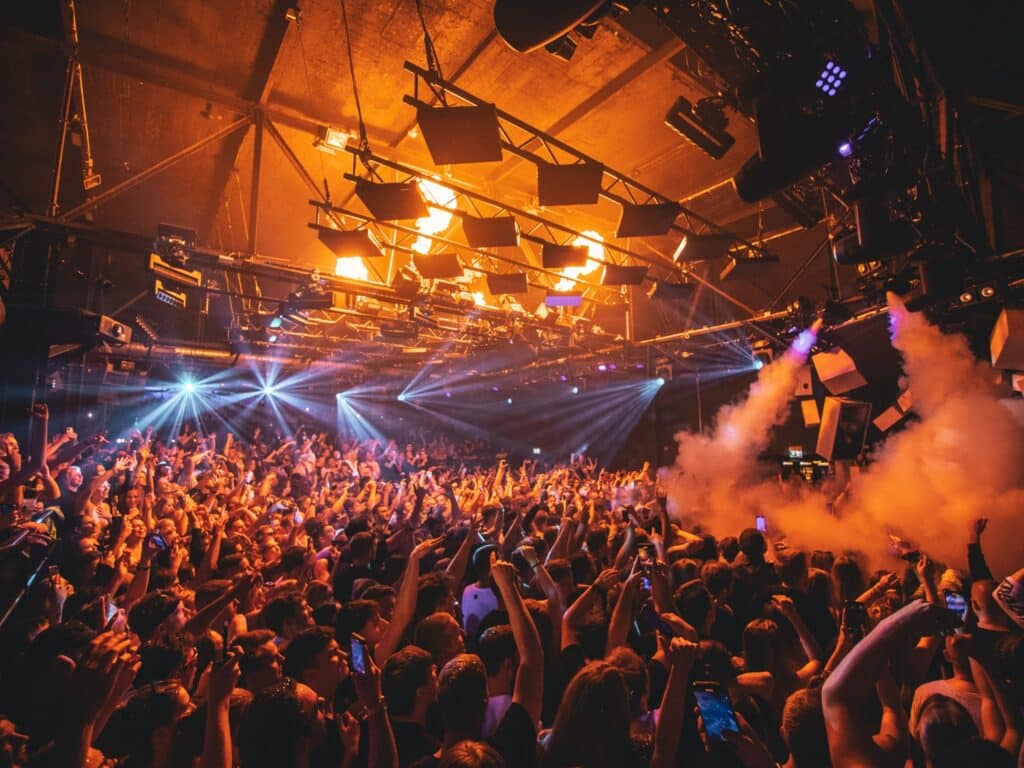
Brick walls, steel structures, and dirty – yet vibrant – dance floors are all leitmotifs of the sprawling complex.
The biggest acts perform in the main room, equipped with a Funktion-One sound system, pyrotechnics, and mind-blowing lighting effects.
The second, Blckbx room, features backlit fan ceilings, sculptures, an all-black interior, and a Martin Audio sound system. Dreherei also features Funktion-One sound system and showcases a stripped-down interior compared to the other rooms, as it has a more intimate atmosphere.
When you need a proper time out from the mother ship’s state-of-the-art sound, step outside to smoke or get food. The open-air area features patio chairs for a laid-back atmosphere, serving snacks like fries, vegetarian sausages, and unicorn – plant-based – meat.
Bootshaus is the epitome of the ultimate electronic temple
Loyal to its techno roots, Cologne’s Bootshaus is your one-way ticket to an other-worldly electronic music adventure.
Be it electro house, hardstyle, techno, drum & bass, or future bass, Bootshaus prides itself on its never-ending love for the bumpy music genre.
Both international and homegrown acts take over Bootshaus’ DJ booth with a diverse music portfolio, ensuring that everybody experiences their killer soundtrack somewhere along the night.
Primarily known for being an ambassador for the city’s sound, Bootshaus gets the masses flooding in with its vibrant soundtrack.
While the main floor’s speakers blast house and trap beats, the smaller room is for those bass-heavy inclined.
International names from the electronic realm that took over Bootshaus’ audio decks include the likes of David Guetta, Skrillex, Avicii, Tiësto, Marten Hørger, Blasterjaxx, Neelix, and Tchami – talking about name-dropping.
But most of the familiar faces behind audio decks are local DJs. Bootshaus forms a playground for the unsung DJs who have honed their mixing skills for years despite their low-kept profile.
One of the club’s resident DJs, Elle Rich, called Bootshaus “a place where everybody can be themselves, laugh, party and sweat.” Describing its vibe as one of the “craziest things I have ever experienced playing in clubs,” Rich assures the average clubber that Bootshaus is one in a million.
Bootshaus Cologne is a budget-friendly experience
Ticket prices for Bootshaus range between $17 to $28, depending on the event. If you know you’re heading to Bootshaus, you can buy tickets online in advance. Unlike upscale clubs with strict dress codes, Bootshaus doesn’t care about what you wear.
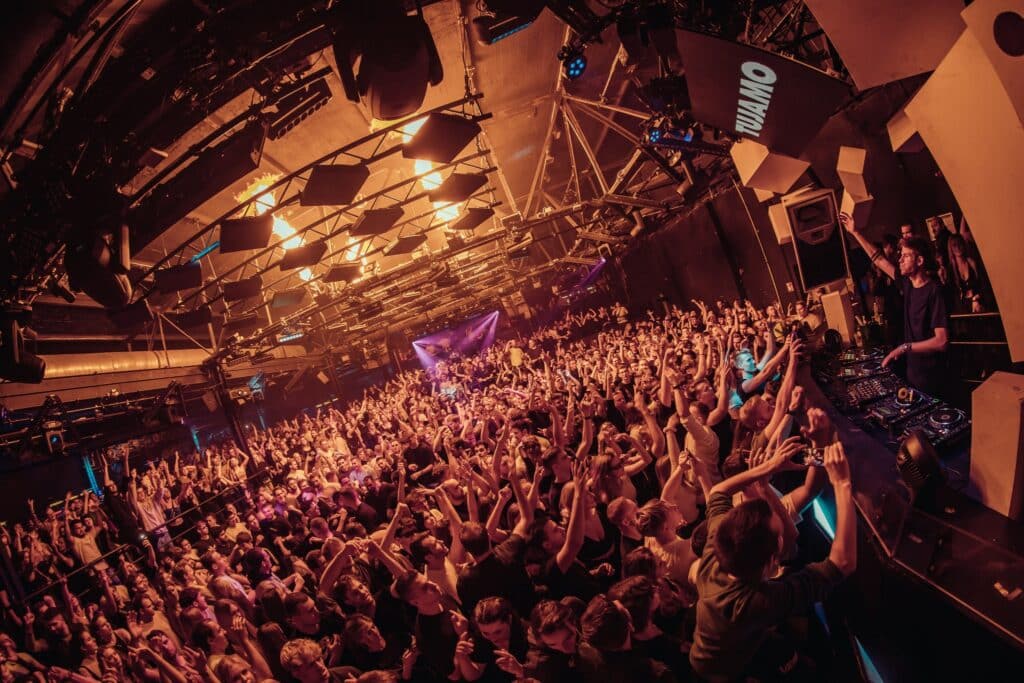
Fortunately, Bootshaus’ door policy is easy to crack. Unlike clubs that require a VIP table to pass through, you just need to show a ticket and obviously be polite to the bouncer to get in.
You say average techno club, Bootshaus says sex-positive party
Who are you when the lights go off, clothes drop to the floor, and bullet-hard techno beats reign supreme? That’s a rhetorical question that makes Cologne’s Bootshaus raise its hand to answer.
Chrome Cologne is the first sex-positive party held at Bootshaus at the end of July 2022.
Featuring a harder techno, clubbers could lose themselves in the beat of the music without falling prey to judgy eyes.
It might be because of its heart-racing tech beats or the carefree attitude – but Chrome at Bootshaus completely bans photos or videos.
While the main floor is open to ravers just like at any other club night, there is a room where a “darkroom guardian” will watch your drinks while you play.
Bootshaus Cologne organized three events as part of Amsterdam Dance Event
For 2022’s Amsterdam Dance Event, Bootshaus organized not one, but three events.
With 1,000 events, killer lineups of 2,000 DJs, and more than two decades of festival planning under its belt, ADE is the world’s largest electronic festival.
For their first event, Bootshaus partnered with electronic music online magazine We Rave You to throw a networking party aptly named Meet Me At The Hotel. Open bar, cocktails, and small plates were provided, with a curated DJ lineup creating the soundtrack for the event.
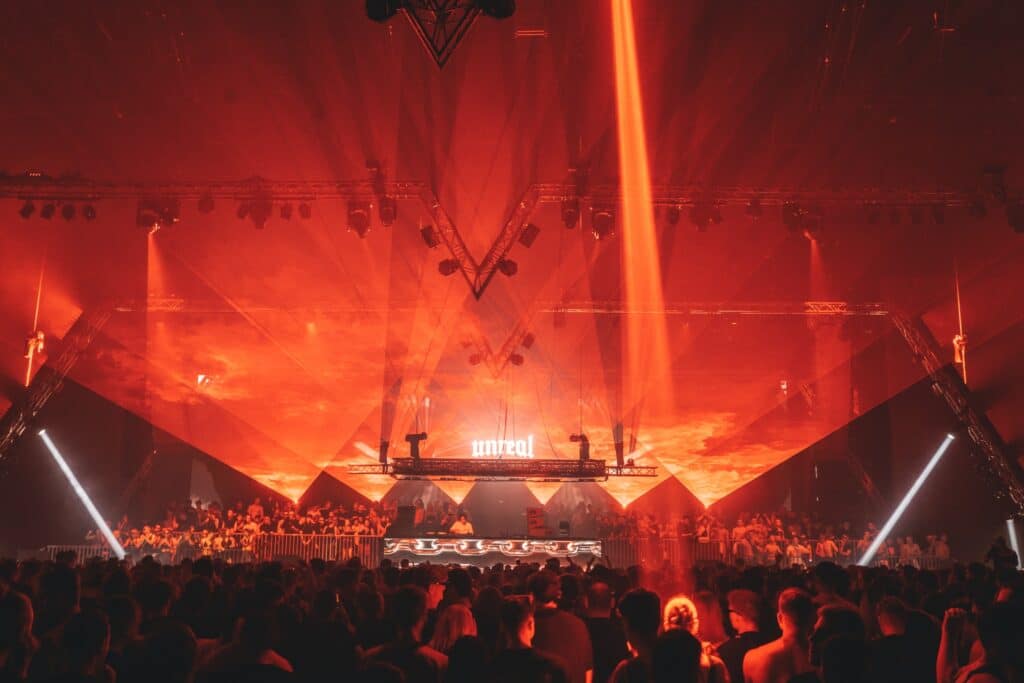
The club is home to two of Cologne’s top music brands, including Unreal, a techno-focused party, and Blacklist, a well-known bass music collective that also hosts its own festival.
Under Bootshaus, techno music collective Unreal has partnered with Free Your Mind festival to organize an ADE special. House DJ Johannes Schuster, Mexican electronic powerhouse Lokier, London-based DJ Øtta, and techno legend DYEN were some of the headliners.
The third party took over a ping pong bar aptly named Pong in west Amsterdam. Blacklist hosted a party with EDM artist GRAVEDGR. Artists like German DJ Lost Identity, hardstyle powerhouse Imperatorz, and drum & bass duo Blvck Crowz fired the shots at the party.
